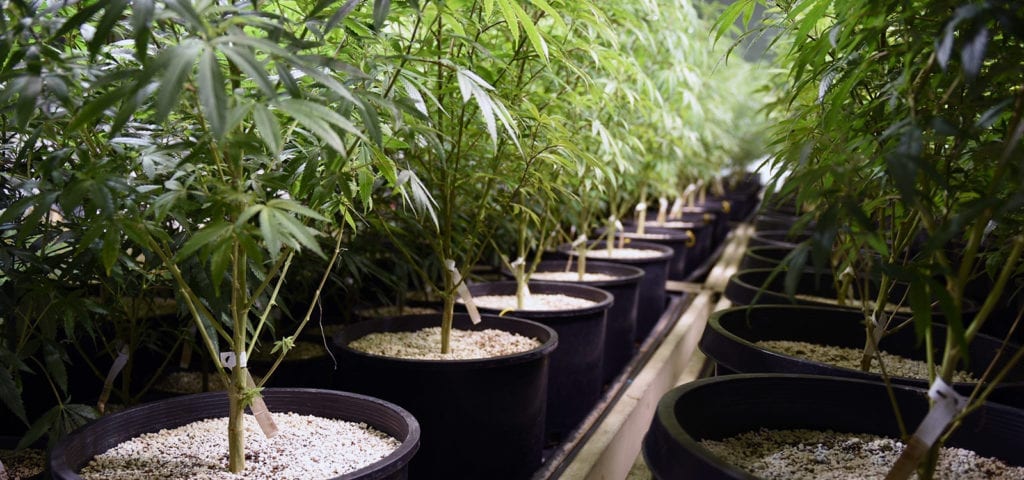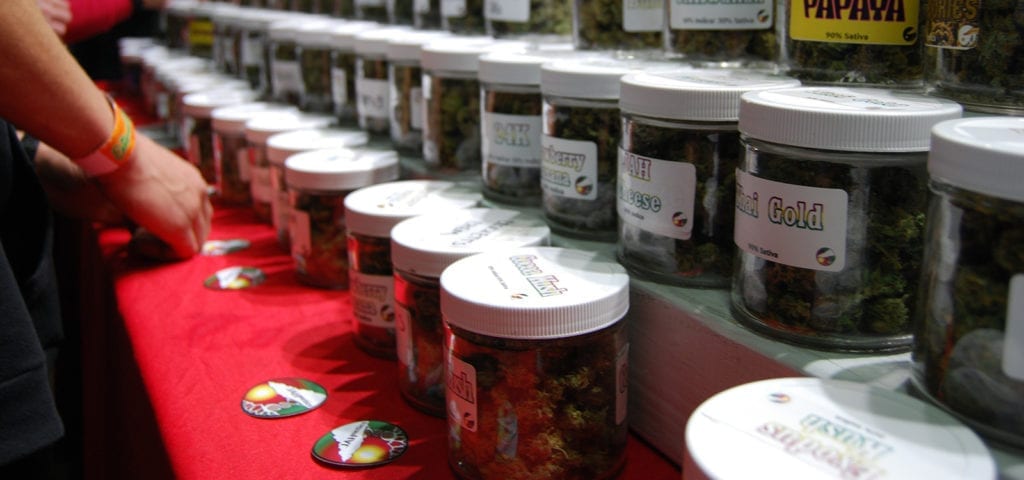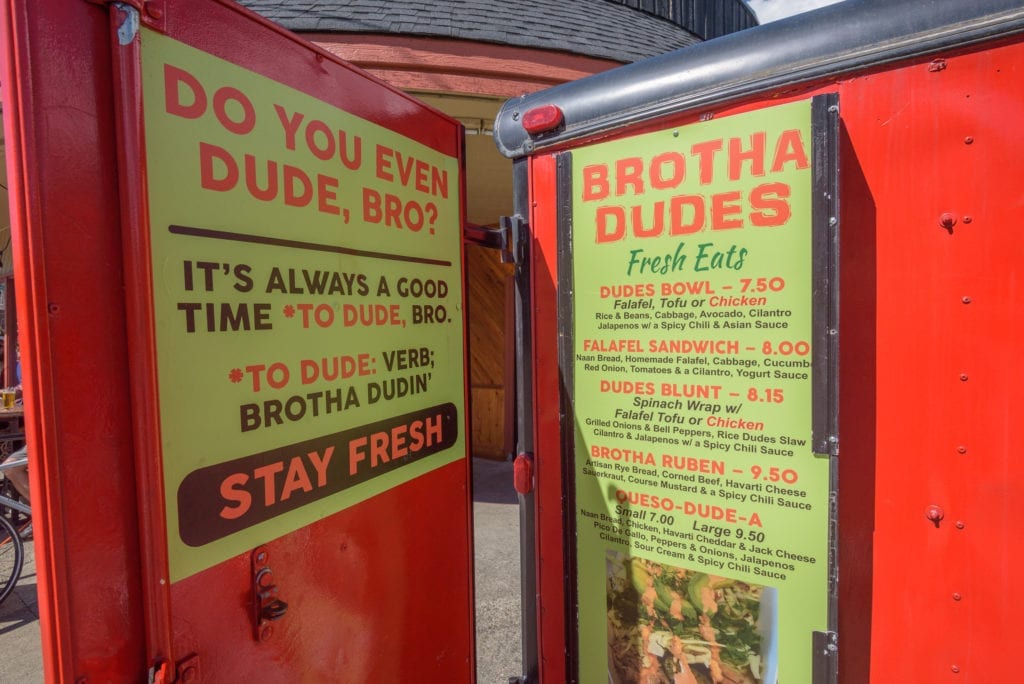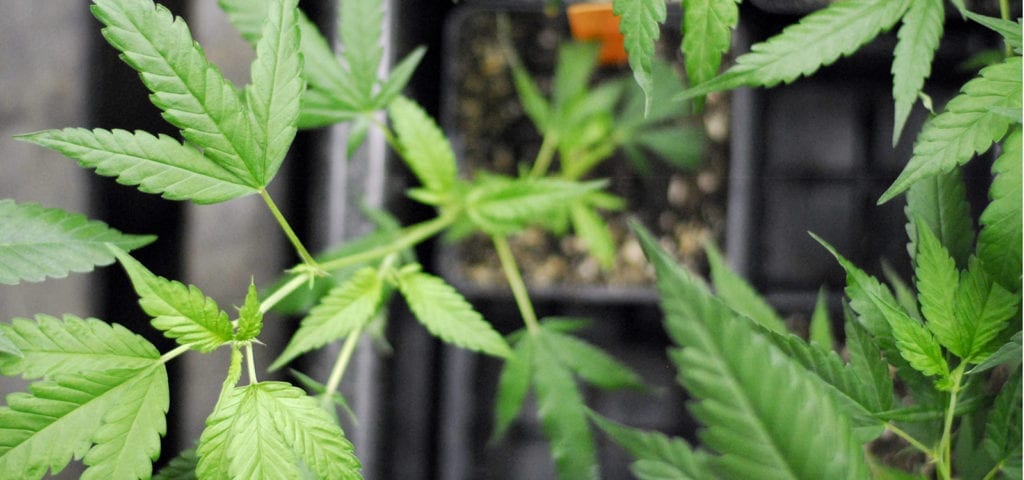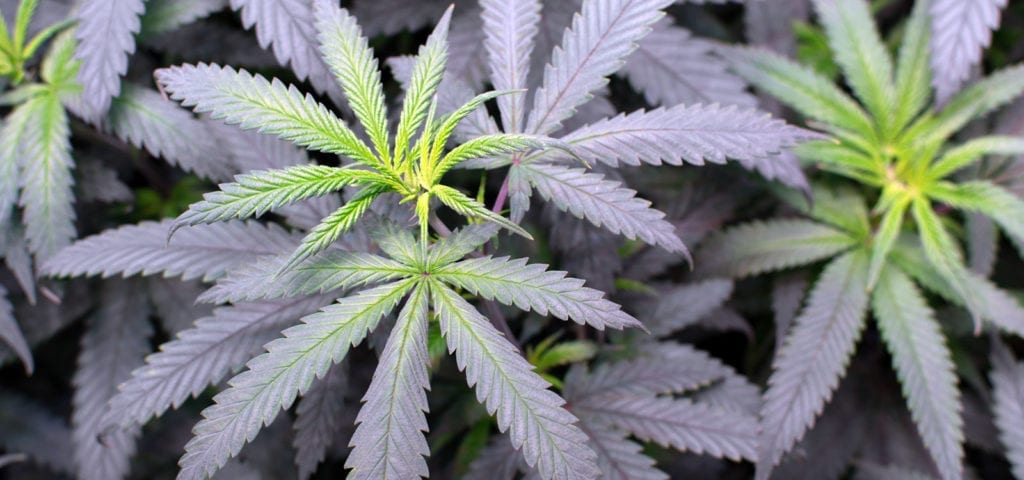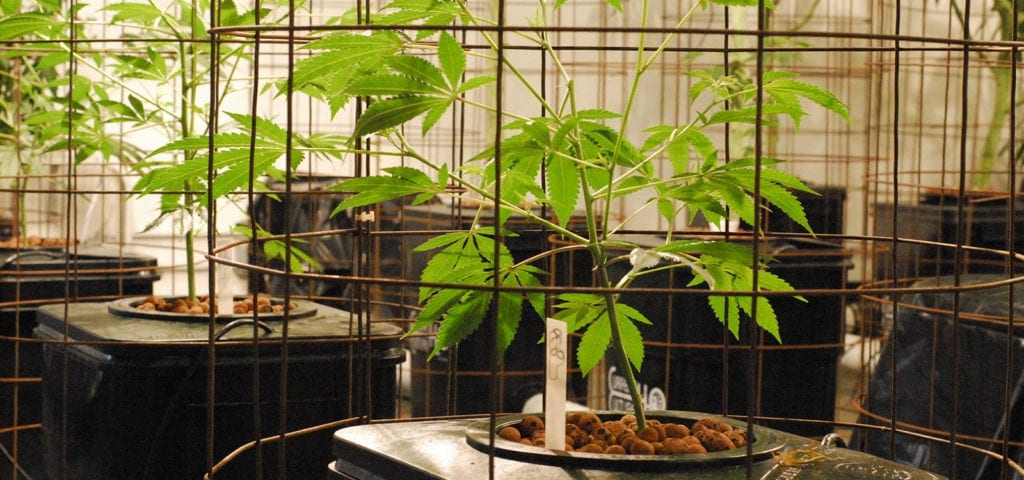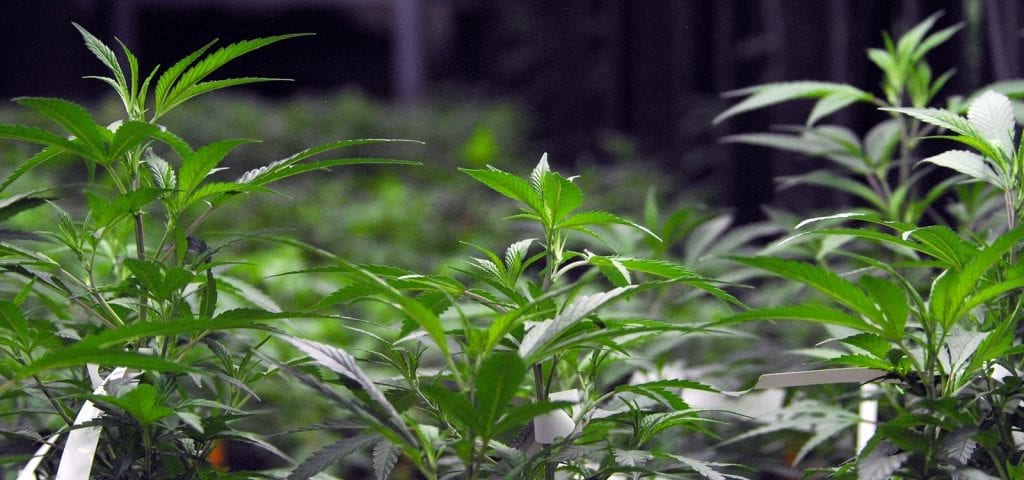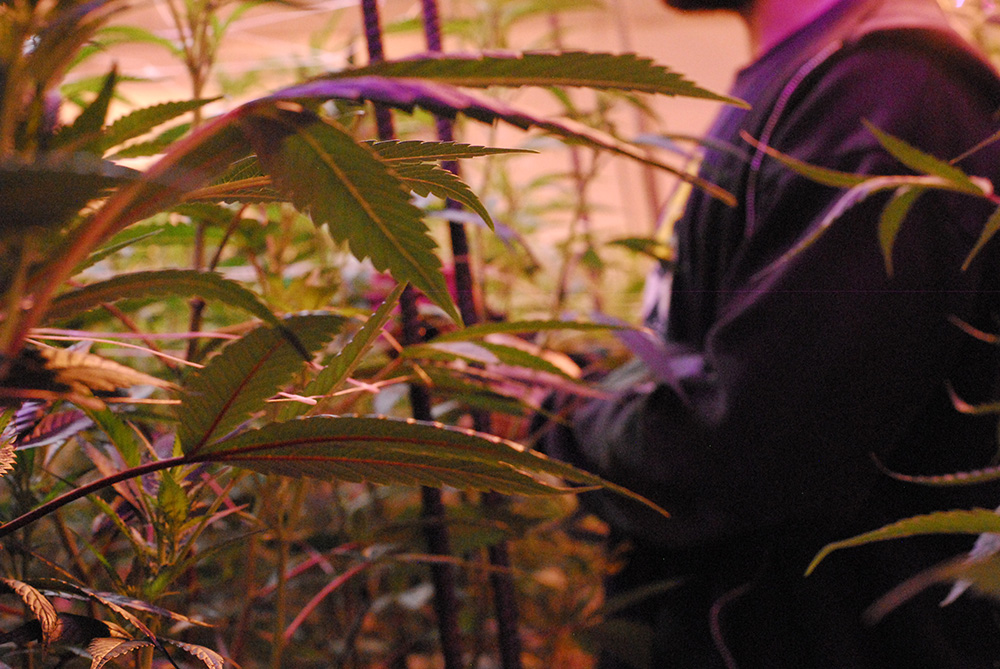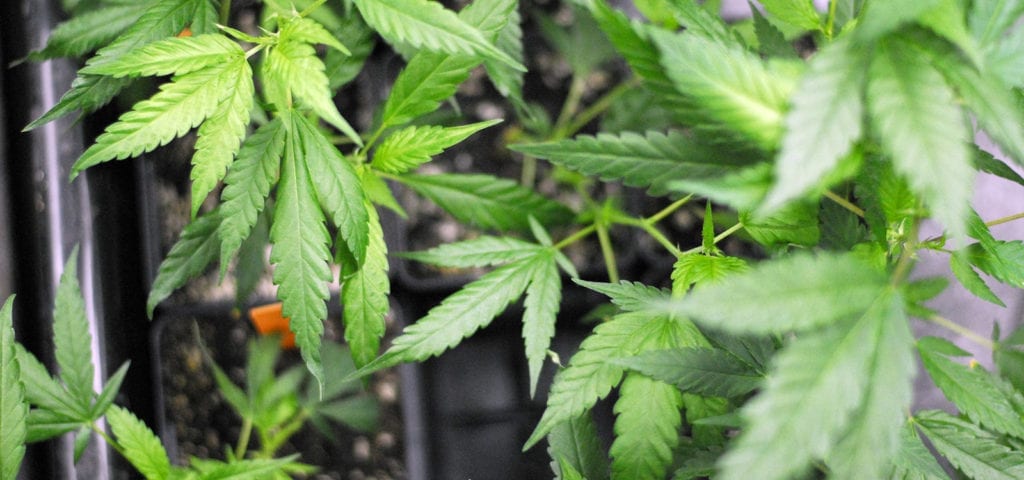James Yagielo is the CEO of HempStaff, a cannabis industry staffing agency that offers recruitment services to cannabis companies and educational courses to prospective cannabis employees.
In this episode of the Ganjapreneur.com podcast, James joins our host TG Branfalt to discuss the cannabis education and training courses that HempStaff has made available across the country and how recruitment services benefit both employers and potential employees. Their interview covers which jobs in the cannabis industry are the most popular vs. the most difficult to fill, which upcoming cannabis markets are expected to make the biggest splash (and when), which cannabis industry positions tend to earn the highest salaries, and more!
Tune in via the player below, or keep scrolling down to read along with a full transcript of this week’s Ganjapreneur.com podcast episode.
Listen to the podcast:
Read the transcript:
TG Branfalt: Hey there, I’m your host TG Branfalt and you’re listening to the Ganjapreneur.com Podcast where we try to bring you actionable information and normalize cannabis through the stories of ganjapreneurs, activists, and industry stakeholders. Today I’m joined by James Yagielo, he is the CEO of HempStaff. How you doing today?
James Yagielo: Very good, how about yourself, Tim?
TG Branfalt: I’m doing great. I’m doing great. I’m really excited to have you on the show. The employment issue is really a big topic that we haven’t really discussed. The industry’s expected to create 250,000 jobs by 2020 and you’re on the front lines training some of these prospective employees. But before we get into that, I want to know more about you man. How’d you end up in the cannabis space?
James Yagielo: Sure, we actually are a Florida based company so we started back in 2014 when it looked like Florida was going to pass medical marijuana the first time. I originally, like everyone else, wanted to get in and touch the plank in cultivation or dispensing and realized with Florida’s laws that really wasn’t going to be possible. So I looked at what other aspects I had done in previous jobs and I’d been involved in staffing and recruiting since 1999 so it seemed logical to go out there and see if there was any interest. I started networking with several people that were already in the industry and looking get into Florida and they seemed really very intuitive about recruiting and then later came training. First we started discussing with them what type of people they were looking for and we realized that the budtenders didn’t have the experience that these people from out of state wanted. They wanted someone like they were used to that had known what cannabinoids and terpenes were. Out of that came our training which we started later on in 2014.
TG Branfalt: How long was it until you came up with the idea of HempStaff, until you had your first placement?
James Yagielo: It was about five months in after talking to people then people started to want to get their application ready for Florida if it passed and they wanted us to hook them up with a master grower or master extractor for another state that was willing to relocate. It did take a few months and around that same time we also started the training class to start training Florida people. Once Florida didn’t pass, we already had these connections nationwide so we took both our recruiting services and our training services to a nationwide level in late 2014.
TG Branfalt: Describe to the audience what it is exactly that HempStaff does.
James Yagielo: We have two facets. Our first facet is a typical recruiting staffing company. Clients come to us for either employees they can’t find because they’re very specialized like a master extractor or a master grower with five years experience or if they just don’t have the time to go through 200 resumes to find their entry level people they may come to us for that. We basically prescreen everyone, we have recruiters in every medical marijuana state who have contacts so they discuss with their contacts where this job is, who’s willing to relocate if relocation needs to be done and then we basically send the resumes to the client so that they get a handful of very qualified resumes and don’t have to spend the time going through hundreds of resumes to narrow it down themselves.
On the other side, we train dispensary agents. We take those people looking to get in the industry but don’t really know how and we train them what needs to be known in a dispensary. The cannabinoids, the terpenes, we cover two dozen products of cannabis, not including the common ones like flower and wax and oils. We go into more of the top levels. The patches, suppositories, the inhalers and you tell them which are best for medical ailments. When they go to an interview, hopefully they can speak intelligently and greatly increase their chances of obtaining a job in a cannabis industry.
TG Branfalt: What are some of the common issues or misconceptions that you see among those who actually attend your courses?
James Yagielo: A lot of times they think it’s a lot simpler than it is. They know indica, they know sativa so they think they’re pretty good and they’re quickly blown away about how many products there are especially in these new states where people have never stepped inside a dispensary before. A lot of times that definitely overwhelms them when they come to our class, especially like I said, in the eastern states. Another thing is that they think because they’ve tried stuff that it’s going to work the same for everyone else which isn’t the case, everyone’s body is different. Just because you can eat an edible and go out and work all day doesn’t mean the patient can eat an edible and go out and work all day.
TG Branfalt: How long are your training courses?
James Yagielo: Our training courses are four hours. We do them on a Saturday afternoon. We have an eight AM class and 1:30 PM class so they can choose morning or afternoon. It’s four hours long and at the end of that four hours we give a certification test, just a HempStaff certification to show that you’re actually paying attention in class.
TG Branfalt: What are some of the challenges that you and your company has faced in the training process?
James Yagielo: Lot of challenges, like I said, the people coming in thinking they already know everything so they don’t really pay attention in class. You have the rare cases where people come to class too stoned to learn, unfortunately. That’s getting less and less but it does still happen. Other challenges are we’re starting to get a lot more people that are over the age of 50 and have never really tried cannabis or if they did it was many, many years ago and they don’t know anything so you pretty much gotta teach them from the ground up ’cause they don’t even know indica or sativa.
TG Branfalt: With this older population, these are older people looking to enter the industry as an employee?
James Yagielo: Correct. Lot of people that come to our class are looking to get into a new industry. They’ve worked different industries in the past and now they’re looking for a change and they’ve heard that the cannabis industry is just going to keep growing so they’re very eager to learn more about it and they take our class sometimes to make that decision if they’re going to switch industries or not.
TG Branfalt: That’s really, really interesting. I had no idea that that was something that companies such as yours or really the industry was seeing. What are some of the non-cannabis professional backgrounds that you see most often represented by the people attending your courses?
James Yagielo: A lot of nurses, physical therapists, even masseuses seem to come to class and they all have the same story where they had a patient that was trying medical marijuana and they saw notable differences in this patient’s improvement as a medical professional dealing with them so they had seen first hand the effects of cannabis and now they want to come to our class and learn more and possibly switch into a better industry because as some people know, nursing is not always the best industry depending on where you’re working. On top of that, we also get a lot of security professionals. A lot of ex-vets, ex-security or police officers looking to get into the industry in the same type of field of security.
TG Branfalt: It’s becoming apparent to me that your course could also double as an entry point for basically anybody to come and learn, get a deeper understanding of the cannabis plant.
James Yagielo: Absolutely. We basically start at the very beginning of the history of cannabis and then slowly work the way up in the course. We quickly go through the growing stages and then we get right into the indica, sativa and then the cannabinoids and terpenes. Even though it’s only a four hour class, we cover all the basic points and it’s pretty fast paced ’cause we do go in detail. A lot of people have taken our course and they’ve gone on to work in other industries, not just the dispensary. We’ve had many people take our course and because they listed our course on their resume, the owner at a cultivation center sees that this person has passion and they took the initiative to take our course so they get an interview and then they realize they know what this person’s talking about from the knowledge they gained and they get hired at a cultivation center. This course definitely helps with figuring out if you want to get into the industry and then actually getting an interview to get into the industry and speaking well at that interview.
TG Branfalt: Was that by design? When you were going about developing this course, did you anticipate a byproduct of it being this entry for a lot of people?
James Yagielo: Not originally, no. We started to really experience that when we got heavy into the Illinois market as that was the first market we really entered at the beginning and saw that these people, a lot of owners were actually telling us they take shortcuts when they get resumes now and they look for people that have taken our training and they put those in one pile as the people to call for interviews. After interviewing people that took our training and didn’t took our training, they really noticed a big difference. So word got out that was a quick way to, pardon the pun, but weed out the resumes.
TG Branfalt: We get a lot of puns on this show. I like it very much. You had mentioned Illinois was the first state that you had really got in from the get go. How do you keep up with the seemingly constant regulatory changes in each individual states? And at the same time how do you prepare to enter a nascent market?
James Yagielo: We keep up, we have two people that they’re pretty much their full-time job is to just go over news stories every day and if it’s marijuana related, especially law related, they send it to our director of legal affairs. Our director of legal affairs and president then also scour over these articles and go through the government website the week before our courses, before the manual is printed so that they can make any adjustments to the manual.
TG Branfalt: You update them every single week?
James Yagielo: Every class. We only come back to an area every three to four months. We have classes all across the nation right now on pretty much a every other week basis. But every time we go to a new city we update that book so we are updating a book pretty much biweekly at this point.
TG Branfalt: I want to get at the meat of what else your firm does. This is all really, really eye-opening to me. But before we do that we gotta take a break. This is the Ganjapreneur.com podcast, I’m TG Branfalt.
If you are looking for a job in the rapidly growing and highly competitive cannabis industry, Ganjapreneur.com is the place to look. Visit the Ganjapreneur job board today to browse current openings with cannabis companies throughout the United States, from entry level budtender positions to executive level career opportunities. You can also create a profile and upload your resume to be discovered by cannabis recruiters. Visit our job board at Jobs.Ganjapreneuer.com to create your profile today.
If you are a business owner, you can post your job openings for as little as $25 on our job board to reach the largest and most engaged audience of cannabis professionals on the web. Companies who are listed in the Ganjapreneur Business Directory are eligible for free job listings. If you are already signed up, contact us today via the website or send us an email at Grow@Ganjapreneuer.com to activate your unique coupon.
TG Branfalt: Hey there, welcome back to the Ganjapreneur.com podcast, I’m your host TG Branfalt here with James Yagielo, CEO of HempStaff. On your guys’ website, you say you guys specialize in finding management level employees. How do you find them in such a nascent industry? Especially you had mentioned Illinois and you got there on the ground floor, so how do you identify these management level candidates?
James Yagielo: In the cannabis industry, five years experience you’re a management level veteran at this point. There are several markets like Colorado, Maine, Washington even now Arizona, Rhode Island, Oregon that have been working at this for five years so we have recruiters in all these states that have contacts and when we get a client who’s looking for someone to relocate to one of these newer states which happens quite often when a new state comes on board, we then contact the recruiters to reach out to all the people that have these three to five years experience and see who’s interested to relocating to that state. And then we go from there and prescreen them to see if they meet the rest of the qualifications.
TG Branfalt: You had said that the experience but what else do companies typically look for in a management level employee?
James Yagielo: Experience is the big thing. You have to prove it. You have to give them who you’ve been working for, what their license number is with the state and everything. They really want people that are going to be able to speak to the DEA, speak to the regulators, hire employees, train employees and do everything ’cause a lot of these owners have never been in the cannabis industry, they just are money people. They’re looking for a manager who’s going to teach them what needs to be done to properly run a cannabis company.
TG Branfalt: I gotta ask you, how easy is it to get somebody to leave a place like Denver or California for say Massachusetts?
James Yagielo: It’s actually a little easier than you’d think. A lot of people left their home state to go out west for the green rush. You do find these people who originally are from Massachusetts or originally from Maryland and now they can go back home and do this. They’re more than willing to do that. On the other side, the east coast states have realized it’s a little harder so they’ve upped their wages. Every state they seem to up their wage a little more for these management level people. A 20, $30,000 increase starts to get people to consider to moving to another state.
TG Branfalt: So you had said at the start of this interview that you had worked in recruiting before in traditional industry. What are the wages like in the cannabis space compared to more traditional manufacturing jobs?
James Yagielo: The management levels are pretty high paying. We’ve seen master growers from 120 to $150,000 salary currently. That’s pretty high up there. Besides your master grower, your master extractors are in the six figures as well. After that it does drop off pretty dramatically. Your dispensary manager’s probably making about the same as your retail manager, between 40 and 60,000.
TG Branfalt: What do, we talked about what companies look for in management level employees. What are they looking for in say an entry level employee?
James Yagielo: A lot of it is passion and compassion. Passion for the cannabis plant and compassion for people or if you’re in a cultivation center, for learning their specific methods. A lot of cultivation centers will only hire a master grower with experience and then pretty much hire everybody else entry level so they can be trained specifically on how they want to grow. They don’t want someone coming in there thinking they know how to do it better. They really look for the person that’s eager to learn.
TG Branfalt: Are there things similar to internships or some sort of program where a master grower will take on somebody who may be an entry level employee to groom them to become a master grower themselves? Is that something that you connect people with? Does it even exist in this industry that you know of?
James Yagielo: It doesn’t really exist in an internship per se. Most states don’t allow that type of thing they have to be an employee. What generally does happen in cultivation centers is they hire a couple assistant growers and a master grower and pretty much a bunch of site workers and trimmers. After couple months they realize out of the site workers and trimmers who’s good at what and who really can move up quick and then they really promote those people quickly. We’ve seen people go from a trimmer to an assistant master grower in under two years.
TG Branfalt: The promotion process seems to happen pretty quickly.
James Yagielo: Absolutely. Yeah, in this industry it happens real quickly.
TG Branfalt: What are some of the hardest positions for you to find qualified candidates for?
James Yagielo: Right now I’d have to say master extractor. Extraction hasn’t really been around in the large scene for that many years. It’s hard to find someone with more than three years experience especially now a lot of states are realizing butane’s not really the best way to go so they’re only looking for those with experience in CO2 or resin press extracting which really limits the number of people out there.
TG Branfalt: I want to talk to you a bit more about your advice for people who might be looking to get into the industry or maybe are already here but before we do that we gotta take a break. This is the Ganjapreneur.com podcast. I’m TG Branfalt.
At Ganjapreneur we have heard from dozens of cannabis business owners who have encountered the issue of cannabias, which is when a mainstream business, whether a landlord, bank, or some other provider of vital business services refuses to do business with them simply because of their association with cannabis.
We have even heard stories of businesses being unable to provide health and life insurance for their employees because the insurance providers were too afraid to work with them. We believe that this fear is totally unreasonable and that cannabis business owners deserve access to the same services and resources that other businesses are afforded, that they should be able to hire consultation to help them follow the letter of the law in their business endeavors and that they should be able to provide employee benefits without needing to compromise on the quality of coverage they can offer.
This is why we created the Ganjapreneur.com Business Service Directory, a resource for cannabis professionals to find and connect with service providers who are cannabis friendly and who are actively seeking cannabis industry clients. If you are considering hiring a business consultant, lawyer, accountant, web designer, or any other ancillary service for your business, go to ganjapreneuer.com/businesses to browse hundreds of agencies, firms and organizations who support cannabis legalization and who want to help you grow your business. With so many options to choose from in each service category, you will be able to browse company profiles and do research on multiple companies in advance so you can find the provider who is the best fit for your particular need.
Our Business Service Directory is intended to be a useful and well-maintained resource, which is why we individually vet each listing that is submitted. If you are a business service provider who wants to work with cannabis clients, you may be a good fit for our service directory. Go to ganjapreneur.com/businesses to create your profile and start connecting with cannabis entrepreneurs today.
TG Branfalt: Welcome back to the Ganjapreneur.com podcast. I’m your host TG Branfalt here with James Yagielo, CEO of HempStaff. What’s some advice that you would have for job seekers? For people who aren’t yet in the industry but may be looking to get involved, the people that would essentially attend your training courses?
James Yagielo: The biggest things that we can recommend is one, get some type of training even if it’s not necessarily our training, get some type of training so you can put it on your resume. It helps in a couple different ways. One, if you don’t have any type of training or any type of experience, the odds of you getting called for a job are pretty slim. Even if you worked at McDonald’s or you’ve worked in IT for 20 years, if you don’t have any type of cannabis related item on your resume, it’s not probably going to be looked at very seriously.
On top of that, we would say, make sure to go out there and do some networking. Meet people. A lot of people don’t get jobs by finding the posting online. They find it because they went to a networking event and knows someone who knows someone who’s hiring. Get out there and get your name out there. Another thing, don’t just blindly send out resumes. You see an application for master grower, it says three to five years experience in the industry, don’t send your resume if you’ve never worked in the industry. They’re just never going to look at it and if they remember your name and you do apply for a job that you were qualified for, they might throw it out ’cause they’re like, this guy applies for everything. We do recommend only apply for jobs that you actually are qualified for.
TG Branfalt: You had mentioned networking events. Here in Vermont, we don’t actually have that many of them. The medical community’s very small, there’s only a few operators. Is that something that you’re seeing more and more in Florida and the other states that you operate?
James Yagielo: Yeah, if you look there’s a lot of events just around the country. You may have to travel a little bit for but up there you may have to go to Boston or Maine or Rhode Island to some of these networking events. In Florida around the state there’s a couple but you also have your local normal events that they just may meet at a local restaurant or something and that’s a good place to network as well.
TG Branfalt: You had just briefly mentioned the emerging markets, in your role, finding employees and operating in so many states, where are you seeing the emerging markets right now?
James Yagielo: Right now Pennsylvania and Maryland are the two that are about to explode. Both Maryland is just basically waiting for product. They have some plants in the ground but they’re still a few months away from product and all their dispensaries are going through final inspection now. They have 109 dispensaries that are approved to open once they get the final inspection. That’s quite a large number. Pennsylvania also has already licensed and they want people up and running shortly too and they’ve approved 52 dispensaries. Both those markets should be online in early 2018 and we expect them to be hiring heavily come late this year.
TG Branfalt: Are you operating in both of those states?
James Yagielo: Yes, we do operate in both those states.
TG Branfalt: What’s your courses thus far? Have you seen a lot of interest in those two states to go along with what you anticipate to be an exploding market?
James Yagielo: Absolutely. We’ve had several classes in the Baltimore area and the Silver Spring area down by DC and Maryland. We’ve actually been conducting classes there for every six months for about two years waiting for the program to get started. They had a few delays along the way. Pennsylvania we’ve probably had three classes there with quite a good turnout already in the past year as well. People are definitely very interested and as we get closer and closer to the opening, obviously, people are getting more and more interested because the news is covering it more and more.
TG Branfalt: What advice do you have for companies trying to find employees?
James Yagielo: What we found is a lot of the owners have never used a staffing and recruiting service so they’re a little bit hesitant in contacting us. My advice is don’t be afraid to use a recruiting company. It doesn’t cost anything to use our company or any recruiting company unless you find that qualified candidate. If we send you five resumes, you find someone else on your own, you don’t owe us a dime. We’re just giving you additional resumes to look at to make sure you’re hiring the right person.
TG Branfalt: You were in the recruiting space for a while, now you’re in this space, you’re probably interacting with a lot of people with an entrepreneurial spirit, what’s your advice for other entrepreneurs looking to get into this space or that might just be starting out?
James Yagielo: A lot of people, just like we did at first, they look straight at cultivation/dispensary right away but there’s so much more to this industry than that. The pick and shovel side of ancillary businesses is really growing faster than the cultivation and dispensary because ancillary businesses aren’t restricted by cannabis state licensing. I would recommend think about, like we did, think about what you have experience in, what you like to do, what you’re good and then figure out how that can be applied to the cannabis industry. Whether it’s starting your own or maybe trying to find someone to partner with or even working for an established company already doing something you love. The industry’s young enough where there’s plenty of room for more companies to start and get into the industry especially with an idea that hasn’t been done yet. That window is closing but at this point in time, just think of what you like to do and try to apply it to the cannabis industry.
TG Branfalt: Where can people find out more about you, your service, HempStaff? Where can people find out more about that?
James Yagielo: Our website is www.hempstaff.com. All the information is there. If you click on the training tab you’ll see all the different cities we have trainings lined up for in the next few months. You can register for free on the site to be emailed if we have a job openings or training in your area or if you’re a business owner we also have a registration form where you can contact us and we can send you more information on our recruiting services. We also have a Facebook and Twitter and LinkedIn page so you can also find us there under HempStaff.
TG Branfalt: I really want to congratulate you on your success, operating in a lot of states is a really impressive feat. You reached out early and are really leading this charge in this ancillary side of the cannabis industry. I really want to thank you for your time today. Really insightful conversation and I can’t wait to see what you guys do and how the industry grows.
James Yagielo: Thank you very much. We’re here to help. We want to make sure employees are assets and not liabilities to the owners.
TG Branfalt: You can find more episodes of the Ganjapreneur.com podcast in the podcast section of Ganjapreneur.com and in the Apple iTunes store. On the Ganjapreneur.com website you will find the latest cannabis news and cannabis jobs updated daily along with transcripts of this podcast. You can also download the Ganjapreneur.com app in iTunes and Google Play. I’ve been your host TG Branfalt.
